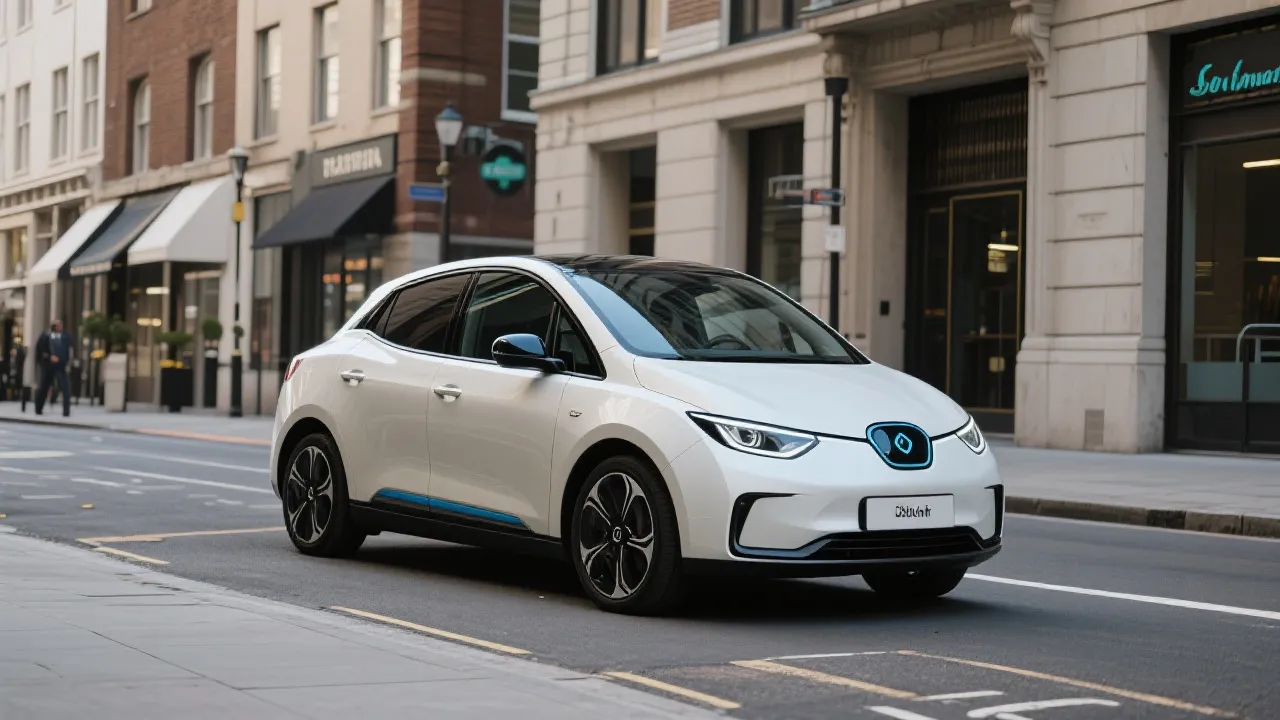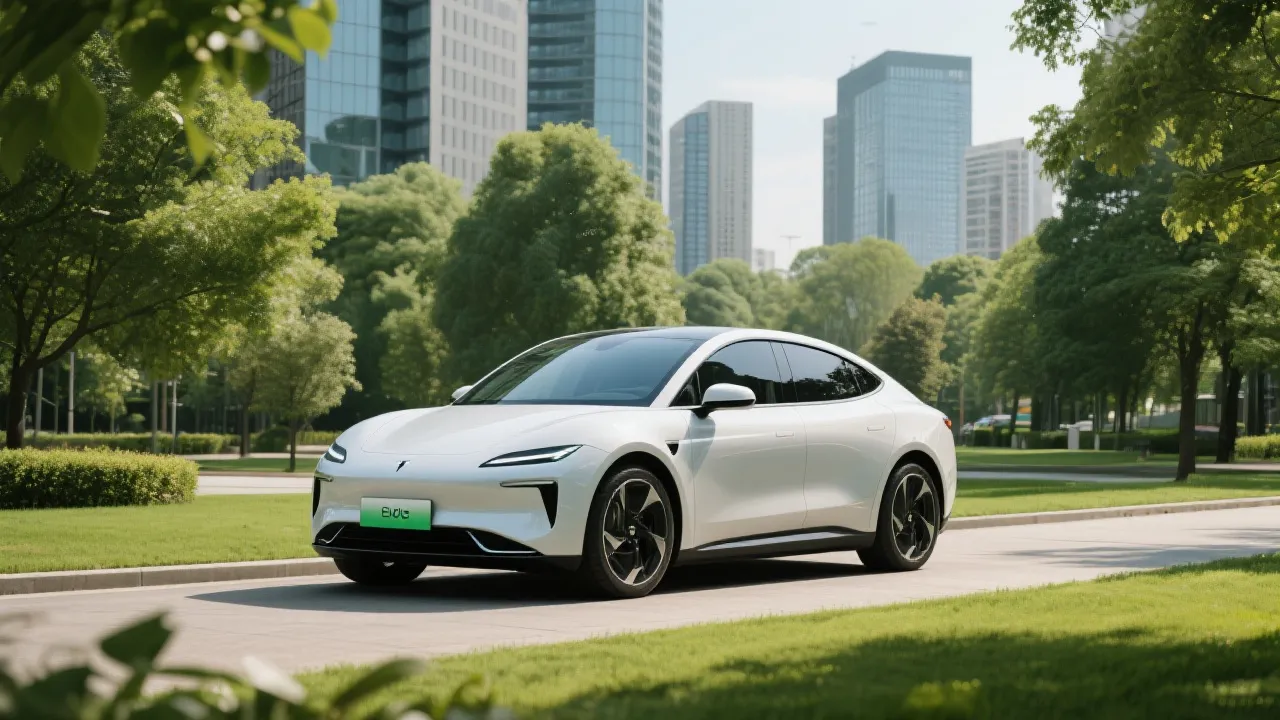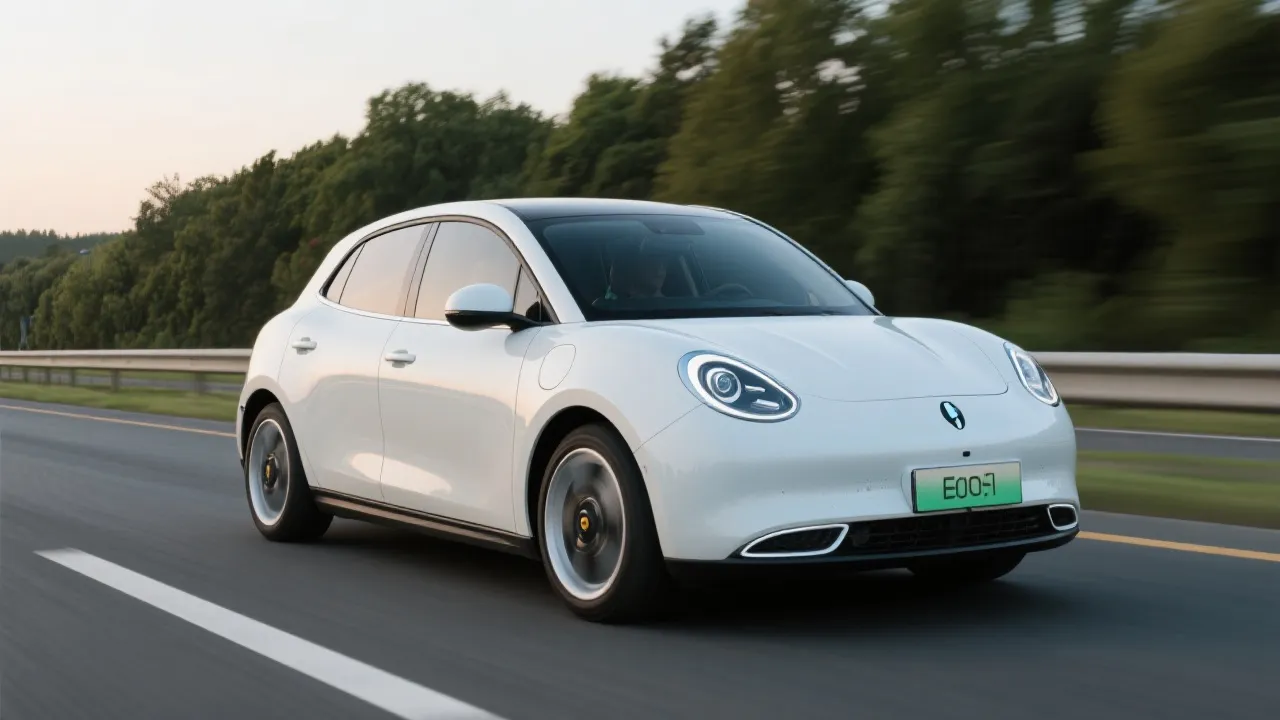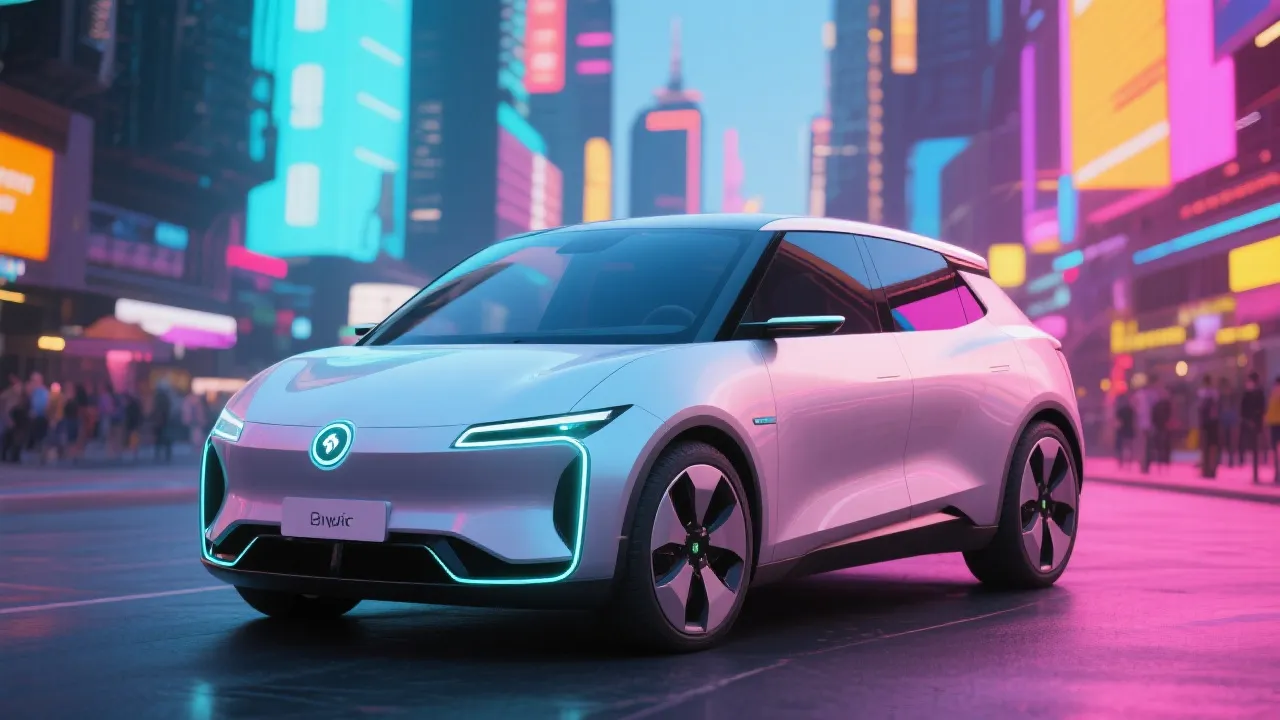Discovering Affordable Electric Cars
This article explores the landscape of electric vehicles, highlighting the journey to find the सबसे सस्ती इलेक्ट्रिक कार (cheapest electric cars) in various global markets. As the electric vehicle market evolves, understanding financing options and key features becomes essential for consumers aiming to make environmentally and economically savvy choices.
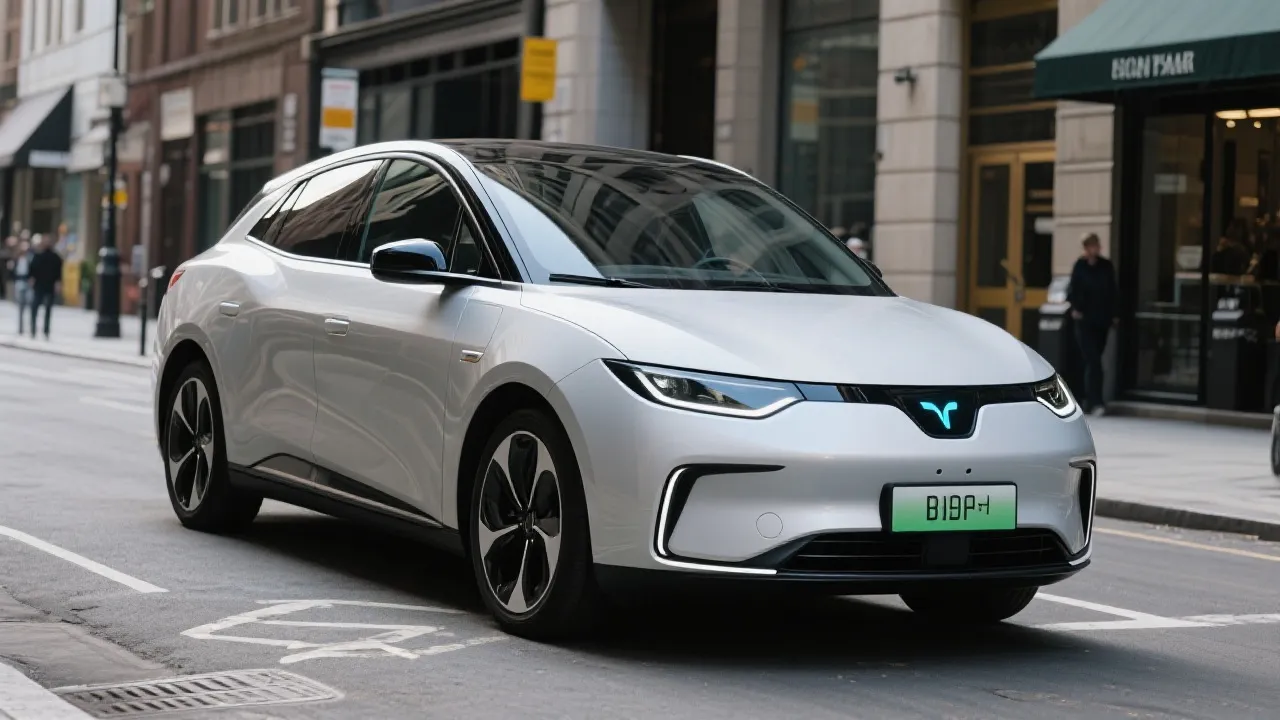
Introduction to Affordable Electric Vehicles
The quest for the सबसे सस्ती इलेक्ट्रिक कार (cheapest electric cars) is a significant aspect of today’s automotive industry. As the shift towards sustainability accelerates amid growing concerns about climate change and environmental degradation, electric vehicles (EVs) have captured the attention of an eco-conscious public, promising zero emissions and innovative technology. The demand for electric vehicles has surged, leading to advancements in battery technology and infrastructure worldwide. However, while the benefits of EVs are substantial, affordability can still present a significant hurdle for many potential buyers. The price of electric vehicles has dropped significantly over the past decade, but many consumers are still looking for cost-effective options. This guide provides insights into some of the most budget-friendly electric options available, emphasizing the importance of cost-effective solutions in green transportation, making sure that the transition to sustainable driving is accessible to everyone.
Affordable Electric Cars in English-speaking Countries
English-speaking regions, particularly the United States, Canada, the United Kingdom, Australia, and New Zealand, offer an array of budget-friendly electric vehicles catering to various market segments. The Chevrolet Bolt EV, with its impressive long-range battery and advanced safety features, has become a popular choice for many seeking a reliable and affordable option. With a range of over 250 miles on a single charge, it addresses concerns about range anxiety, making it suitable for both urban and rural driving. Similarly, the Nissan Leaf stands out with its efficient technology and competitive price point suited for mainstream users, appealing to both first-time EV buyers and seasoned eco-conscious consumers. Its user-friendly interface and spacious interior make it a practical choice for families. Meanwhile, Hyundai's Kona Electric provides a versatile compact SUV experience, boasting a commendable electric range while delivering the comfort and features typically found in gas-powered SUVs. The Kona Electric's design also ensures it stands out on the road with a stylish outer appearance and a spacious interior packed with the latest technology. Additionally, the Kia Niro EV packs a spacious interior within its practical design that suits many lifestyles, from single commuters to families needing more cargo space. Its hybrid-like functionality enables it to operate as either a traditional EV or a gas vehicle in certain circumstances, providing flexibility for diverse driving needs.
| Car Model | Key Features | Financing Terms |
|---|---|---|
| Chevrolet Bolt EV | Long-range battery, safety features, spacious interior, modern infotainment system | Zero down payment, region-dependent financing options, leasing options |
| Nissan Leaf | Efficient drivetrain, modern tech, affordable pricing, various range options | Interest-free financing for select models, incentives available |
| Hyundai Kona Electric | Versatile SUV, user-friendly, smooth driving experience, advanced safety features | Low-interest financing, attractive leasing terms |
| Kia Niro EV | Spacious interior, eco-friendly design, intuitive controls, extended range | Promotional financing options during seasonal sales, loan programs for low-income buyers |
source: chevrolet.com, nissan-global.com, hyundaiusa.com, kia.com
Pathway to Purchase: Zero Down Payment
Securing an electric car with no down payment can notably reduce initial ownership costs, a vital consideration for buyers transitioning to electric vehicles. To make such a purchase, potential buyers are encouraged to explore dealership offers, bank financing, and regional incentives that facilitate zero down payment terms. Many manufacturers have recognized the financial challenges associated with purchasing EVs and have created specific promotional campaigns designed to entice buyers. For instance, dealerships often feature trade-in bonuses, cash rebates, and special financing plans that can reduce the upfront cost of purchasing an electric vehicle. Researching different financing options is crucial as many EV manufacturers also partner with local governments and organizations to provide incentives that can further divine ownership costs.
In addition to regional dealerships, online platforms have also emerged as a significant source for finding financing options tailored to new electric cars. Many financing companies now offer customized loan arrangements that focus on environmentally-friendly vehicles, sometimes linking financing rates to reduced carbon emissions. As prospective buyers dive into the world of electric vehicles, they should also consider the overall cost of ownership, including federal and state incentives or rebates that can come into play after purchase. Understanding the full picture of what a no-down payment purchase entails— from financing to insurance and potential government incentives— is critical in making an informed decision.
Purchasing in Portuguese-speaking Markets
In Portuguese-speaking countries such as Brazil, brands like Voltz Motors and BYD Brasil offer attractive electric models and zero-interest financing options that cater specifically to local market needs. Voltz Motors has garnered attention for its compact city electric vehicles designed for urban commuters, emphasizing practicality, efficiency, and competitive pricing. BYD Brasil focuses on providing a range of electric models including buses and commercial vehicles, underscoring their commitment to promoting sustainable transportation. The electric vehicles offered by these companies are user-friendly, aiming to cater to a diverse demographic while promoting a sustainable future. Renault Brasil and Nissan Brasil also contribute to affordability in the electric vehicle sector with competitive offerings like the Renault Zoe and the Nissan Leaf. The Renault Zoe, known for its compact size and practicality, has carved a niche in urban environments, making it a common sight in metropolitan areas. These models complete a suite of accessible electric vehicles in the region and represent an interesting case study of how government regulations and incentives are shaping the adoption of electric vehicles in Brazil.
Governments in various Portuguese-speaking countries are enhancing support for EV purchases through various means, such as taxes exemptions, cash rebates, and numerous incentives for those looking to install home charging stations. Such measures significantly broaden the demographic of would-be EV owners, allowing more families and individuals to experience the advantages of electric mobility without the typical associated costs. This push toward providing affordable electric cars aligns with global sustainability goals and shows that even emerging markets are prioritizing clean technology to combat climate change.
Benefits of Zero Down Payment Electric Vehicles
The advantages of acquiring an electric car with no down payment extend beyond immediate financial relief. It allows consumers to allocate resources to other necessary expenses, such as home charging stations or insurance, without burdening their current financial status. The installation of a home charging system can be a one-time investment that leads to significant savings in terms of time and money gathered through refueling at home instead of utilizing public charging stations. Additionally, the reduced upfront cost can ease the transition to cutting-edge technology featured in modern electric cars, allowing individuals to enjoy the latest features while easing the financial strain of the upfront purchase.
Besides financial benefits, embracing electric vehicles naturally aligns with environmentally friendly practices. Electric vehicles typically have a smaller carbon footprint compared to internal combustion engine vehicles, and as customers shift to EVs, they actively contribute to reducing greenhouse gas emissions. Moreover, they are often quieter and provide a smoother driving experience, contributing to reduced noise pollution in urban environments. Long-term savings can be realized through reduced fuel and maintenance costs; electric vehicles benefit from fewer moving parts, which translates into lower repair and maintenance expenses over time. Additionally, there are often government incentives such as tax credits for electric vehicle purchases that can further reduce total ownership costs.
The community benefits of adopting electric vehicles extend to the broader population as well. Increased adoption of EVs encourages the development of charging infrastructure, making it more convenient for all consumers. As electric cars gain a stronger foothold in the automotive landscape, the accompanying infrastructure, such as charging stations and upgrades at the electrical grid level, enhances accessibility and reliability, allowing for longer routes and encouraging more people to consider the shift to electric cars.
FAQs on Electric Vehicles and Financing
Q: What are the primary benefits of electric cars?
A: Electric cars offer several benefits, including reduced emissions that contribute positively to the environment, lower operational costs primarily due to the reduced cost of electricity versus gasoline, and quieter operation compared to traditional internal combustion engines. Moreover, most EVs come loaded with contemporary technology features that improve the overall driving experience.
Q: How do zero down payment financing options work?
A: These financing options allow buyers to finance the entire cost of the vehicle without an initial down payment. This option is often subject to credit approval and specific financial terms offered by the manufacturer or dealers but can make it considerably easier for buyers to own an EV, particularly at the outset of the purchasing process.
Q: Are electric vehicles more economical in the long run?
A: Yes, electric vehicles are typically more economical in the long run, thanks to lower fuel costs derived from using electricity instead of gasoline, potential tax incentives provided by various governments, and reduced maintenance expenses due to fewer mechanical parts needing repairs. Additionally, many electric vehicle owners report strong savings on day-to-day commuting as a result of transitioning from fuel-based vehicles.
Q: What incentives are available for purchasing electric vehicles?
A: Various incentives are available at both federal and state levels, including tax credits, rebates, and sometimes even grants aimed at encouraging the purchase and use of electric vehicles. Local governments may also have programs that assist in funding home charging installation, making it more feasible for individuals to transition to electric transportation.
Q: What should I consider when purchasing an electric vehicle?
A: Consider factors such as the electric vehicle’s range, charging time, the availability of local charging stations, tax incentives, overall ownership cost, and your own driving habits. Evaluating these elements will ensure you find an EV that addresses your needs while also fitting into your financial plans.
Conclusion: Moving Towards a Sustainable Future
In the journey towards finding the सबसे सस्ती इलेक्ट्रिक कार, understanding both the technological advantages and financing options is crucial. As more models enter the market with attractive financing solutions, electric vehicles become an increasingly viable choice for consumers worldwide. The automotive industry is evolving rapidly, responding to consumer demand for cleaner, greener vehicles. This transition represents a commitment not only to economic benefits and personal convenience but also to environmental stewardship, paving the way for a sustainable future in the automotive sector.
Moreover, as cities and governments worldwide strive to implement stricter environmental policies, the growth of electric vehicle adoption will play a pivotal role in reducing urban transportation emissions. As consumers weigh their options, the role of information is vital. Clear communication about purchasing strategies and potential savings is instrumental in forming a well-informed consumer base that can make choices aligned with personal values and collective responsibilities to the environment. The ongoing development in electric vehicle technology, charging infrastructures, and their wider acceptance is an encouraging sign that we are collectively moving towards a sustainable mobile future.
Disclaimer: The information presented here is sourced from online resources as of October 2023. For the most up-to-date details and specific regional offers, refer to the official websites provided in this article.
For further reading and comprehensive details, please explore the official websites linked throughout this guide. Participation and engagement from the public, manufacturers, and governments alike will ensure the electrification of our roads is both sustainable and equitable for all.







